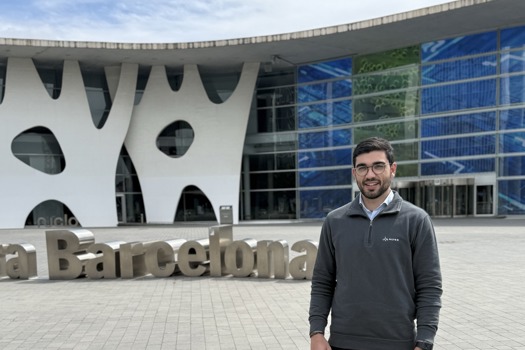The new machine, which can die-cut IMLs for processing in a single pass, got its commercial launch at Heidelberg's Wiesloch Walldorf site at the end of September. So far five machines have been sold to companies in Belgium, Turkey, Canada, the US and one unnamed European country. It was in the development phase for around 18 months prior to launch.
The machine, which was first discussed at LabelExpo Europe last month but on show at Heidelberg’s Label Day event, can process foils and papers at up to 10,000sph, which Heidelberg says is double the speed of a flatbed die-cutter, and takes materials ranging in thickness from between 0.05mm and 0.3mm.
Heidelberg product manager Philipp Doley said pricing was dependent on the market and configuration, but would definitely be over the €1m (£890,000) mark, with Heidelberg adding that for production runs of 500,000 sheets the cost of tooling is reduced by 50% compared to traditional flatbed die-cutting.
"This is the first of its type,” said Doley.
“A lot of customers are asking for this solution, who already have flatbed die-cutters but want the possibility to do hole punching and now we have the solution that they can completely change to rotary die-cutting.”
Intended for POS and packaging, as well as IMLs, the machine can cut injection holes of 5mm diameter minimum. Its first unit places an injection in the label using a die on a magnetic cylinder, reducing production times, while its second unit then cuts the contour of the label from the sheet.
Doley added: “On a flatbed die-cutter the cutting process for the sheet has to stop completely and speed up 100% afterwards, so you always have a hard stop and a hard run. On rotary, the sheet is always moving.
“The market is changing so if you have the possibility to cut and blend holes you can also speak about different kinds of holes, not only small injections but also the possibility to cut a window and extract the window in the label. So maybe this creates a new kind of product.”
Doley also said that, whilst the UK is a target market for the machine, it is not the highest priority for it as IML is less common.
“I’m sure there are some small print shops producing IMLs in the UK but this machine we are discussing is high industrial printing so you need lots of volume to fill a machine like this,” he said.
Also at Label Day was the Speedmaster XL 106 configured with IML performance package, which Heidelberg said offered a speed bump of 20% over a conventional XL 106.
Earlier this year, Heidelberg launched three new packaging post-press machines.










